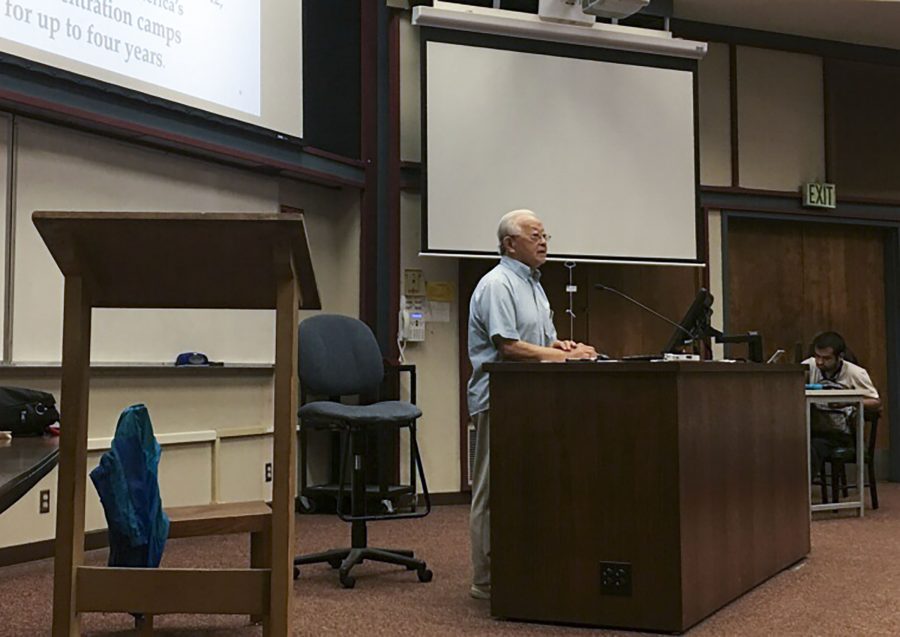History Class Remembers Horrors of Japanese Internment
April 5, 2017
Photo by: Makinna Malady
Sab Masada recalls his internment during World War II in FH-101 on Tuesday, April 4, 2017
Marion Masada was 9 years old, and Sab Masada was a young teenager when their families, like other Japanese throughout the United States, were rounded up and taken to internment camps.
The Masadas spoke about their experiences in internment camps during World War II. Their speech in Professor Paul Gilmore’s history class in Forum Hall 101 on April 4 was part of the Asian American Month activities at Fresno City College.
The Masadas were two of the 20,000 Japanese Americans who were robbed of their rights, homes, jobs, friends and schools and confined in “relocation” and incarceration camps.
“The only crime was our face — we looked like those who bombed Pearl Harbor,” Masada said. The U.S. government’s reason for creating the incarceration camps was for “national security and military necessity.”
Gilmore started the event by welcoming Sab Masada who shared the government’s reasoning behind the Japanese American internment camps and the hardships he and his family endured during and after the ordeal.
When Marion Masada took the stage, she shared her compelling story of being shipped around from camp to camp, beginning at the Salinas Rodeo Grounds to Arizona where the weather was an unbearable 120 degrees Fahrenheit.
She recalled how they were known by numbers, rather than their names. Their families lived in a 20 feet by 25 feet shack that had only one light bulb. The showers and toilets were lined up side by side and provided no privacy at all. She talked about the exposure and humiliation and how awful it was.
“I felt being Japanese was bad,” she said. “And that I was the reason for the war.”
At the end of the event during a question and answer period, someone asked if the people responsible for these internment camps were punished.
“The government’s propaganda did raise the question of guilt,” Sab Masada said. “However, General [John L.] DeWitt [who was instrumental in the development of Executive Order 9066, which directed the internment of all Japanese Americans living on the West Coast] was promoted and was honored later in his career.”
This is the 10th year the Masadas have come to tell their stories at FCC. Sab Masada said he intends to keep this tradition going in hopes that history never repeats itself.
